How to stem the progress of Jihad.
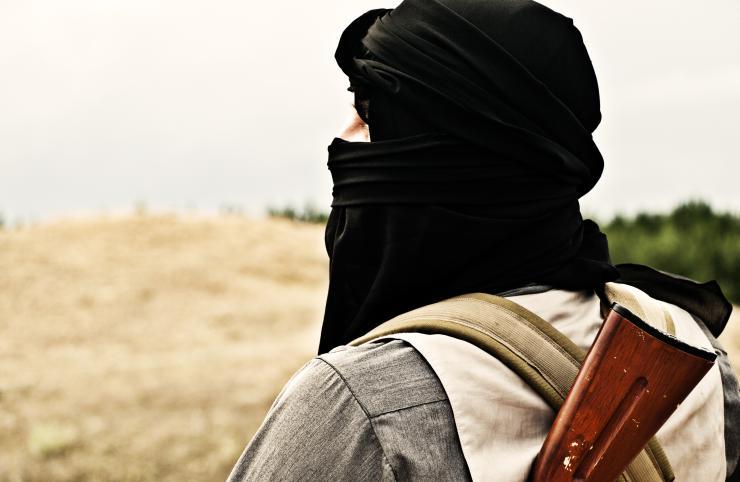
Nouakchott has not suffered large-scale attacks for 12 years. There are three reasons: collaboration with neighbouring countries, the intervention of religious authorities and having “institutionalised” the demands of Islamist parties and movements.
The Sahel is an endemically poor region and Mauritania struggled significantly after independence, to achieve economic development that lived up to expectations. Over the last 5 years, the country’s GDP has grown by 5% on average and according to more recent estimates, it should even reach 8% this year. This remarkable economic development is the result of two characteristics of the country’s geopolitics in relation to the main trends in the region. Firstly, in an almost proportional relationship between the two components: the more the instability of the Sahel region has worsened in the last 10 years, the more Mauritania has emerged as a happy island.
Putting the brakes on terrorism
The first factor of three which have secured Mauretania from large scale terrorist attacks is the country’s institutions successfully collaborating with the institutions of Morocco and Algeria. The second is the deradicalization campaign carried out by the political and religious authorities, thanks to the training of dozens of religious leaders, to respond to jihadist propaganda.
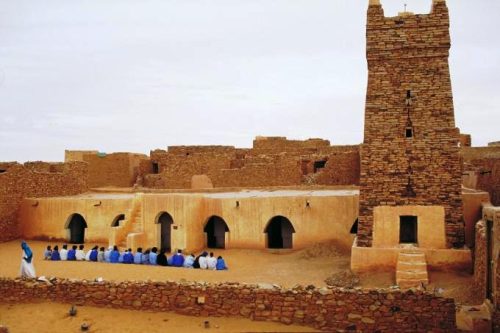
The Great “Friday Mosque” in Chinguetti town in northern Mauritania. File swm
Finally, and most importantly, the Mauritanian political debate has managed to institutionalize the demands of Islamist parties and movements. The foundation of parties such as the Rassemblement Nationale pour la Réforme et le Développement (RNRD) has made an important contribution in this sense.
Simply put, by guaranteeing the possibility of advancing certain demands peacefully and countering the propaganda of terrorists, Jihad has progressively lost its appeal in Mauritania.
A Force for Stability
Internal stability has increased Mauritania’s role at the regional level. The increasing instability in the Sahel has allowed Nouakchott to emerge as a barrier to migration and systemic collapse for Europe, a role exercised in tandem with Niger until the Niamey coup last July. Capitalizing on this new perception, Mauritanian authorities have made diplomatic efforts to promote regional stability.
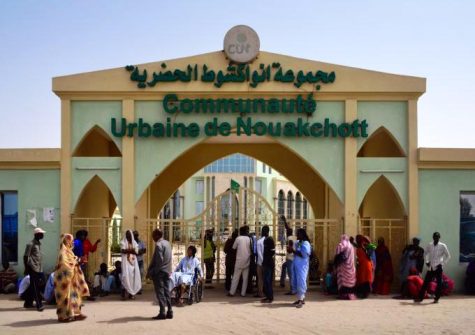
The gates of Nouakchott City Hall. iStock/mtcurado
Nouakchott acted in concert with Chadian authorities to avert the collapse of the G5 Sahel, with little success. While Mauritania left the ECOWAS in 2000, it maintained solid relations with the regional community which culminated in the signing of an association agreement in 2017. Even after the coup in Niger in July, the Ghazouani presidency continued to strengthen cross-border cooperation with Senegal and Mali. Energy cooperation projects for the development of solar energy have also been launched with Bamako.
In a region characterized by the return of military authoritarianism, Mauritania is today the only Sahelian country led by an elected government, presided over by Mohamed Ould Ghazouani, leader of the El Insaf party. The transition to democratic government was not free from moments of great complexity and, above all, from the need to combine economic development with the overcoming of some archaic customs present in Mauritanian society and the fight against corruption.
On the economic level, Ghazouani played a more proactive role in the country’s development and modernization policies, continuing along the lines of the policies started by his predecessor. The fight against corruption has continued with illustrious victims, including former president Ould Abdel Aziz, sentenced last December to 5 years in prison. With regards to the abolition of slavery (officially outlawed in 1981), the government has broadened the area in which the rules must be applied against the phenomenon (including, for example, child labour), but difficulties still remain in the effective implementation of these laws and slavery is still practiced in rural areas of the country.
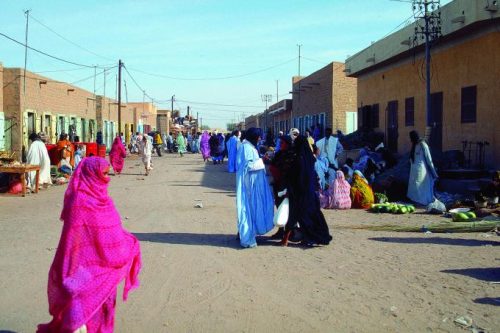
Mauritania is today the only Sahelian country led by an elected government. File swm
Energy remains one of the driving factors behind Mauritania’s centrality for regional balances. Between 2014 and 2015, vast gas deposits were discovered on the maritime border with Senegal which Nouakchott wants to exploit both to satisfy internal demand and to enter fully the regional hydrocarbon market. Within this year, Mauritania will begin extracting natural gas from the Grand Tortue Ahmeyim (GTA) field, for which 4.8 billion dollars have been invested. The GTA, managed by the English British Petroleum (BP) and the American Kronos, has a production capacity of 15 trillion cubic feet of gas and in the first extraction phase (which should last until 2025) will be capable of producing 2. 5 million tons of gas per year.
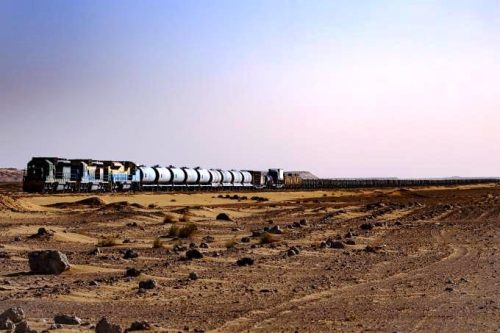
The legendary iron ore train of Mauritania. iStock/Jon_Johnnidis
In addition to the extraction of its own natural resources, Mauritania also aims to become a strategic hub for the West African energy market by taking advantage of its geographical location. Under the aegis of Cedeao, in September 2022 the energy companies of Senegal, Mauritania and Morocco signed an agreement of intent for the construction of the Gas Atlantic Pipeline (Gap). The Gap should connect Nigerian fields to Morocco and potentially reach European markets via Spain. The project involves the construction of 7 thousand kilometres of infrastructure with the capacity to transport approximately 3 billion cubic meters of gas per day passing through 13 African states.
This enormous and very fast process of economic development which involves a country hitherto considered endemically poor is not without its grey areas. Despite the positive results achieved by Mauritania, there is growing dissatisfaction among the population with the democratic system in the country. According to a July 2022 survey conducted by Afrobarometer, more than 70% of the population are not satisfied with the current regime and do not consider Mauritania a true democracy. This data highlights the challenge of combining modernization with the equitable redistribution of gas revenues. (Photo: Jihadist fighter. Shutterstock/Getmilitaryphotos)
Luciano Pollichieni



